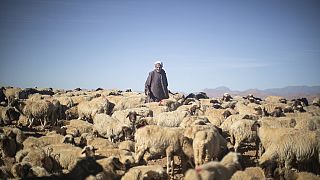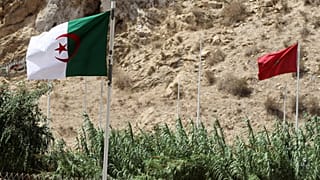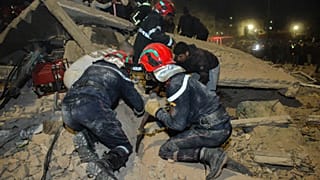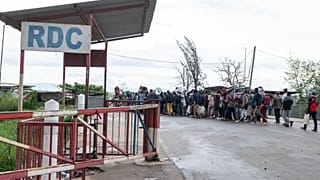Morocco
Hammams, or public baths, have been an integral part of the way of life in Morocco for centuries - a place where men and women, regardless of social class, come to wash and unwind.
Bathers sit on stone slabs under mosaic tiles, lather with traditional black soap ,and wash with scalding water from plastic buckets.
But climate change and a six-year drought have taken their toll.
The interior minister ordered hammams in cities including Casablanca, Tangier, and Beni Mellal, to remain closed for at least three days a week as part of water restrictions.
Owners say they are struggling to stay afloat as they still have to taxes, water, and electricity bills, but their income has decreased.
In addition, they say it is not so simple to reopen their facilities after a three-day shutdown as letting the heating systems go cold has technical repercussions.
"We suggest that hammams should not be closed three days a week, but rather that they be closed daily in the morning and open from midday to 9pm. That is in order to ensure the continuity of the heating room to keep it hot,” says Fatima Fedouachi, president of the hammam owners’ association in Casablanca.
She says that evening even on days when they are closed, most hammams continue burning wood - an expense they could do without when no customers are coming through the doors.
Though hammam associations have yet to publish statistics on layoffs or loss revenue, they have warned about the closures' effect on owners, chimney technicians, and receptionists.
Workers are concerned about the impact on their livelihood.
"For us workers, we’re not earning as much as before. Clients don't come very often. Even if it's busy Thursday, Friday, Saturday, and Sunday, they avoid coming because they are afraid of the hammam being too full of people," says hamman worker, Fatima Mhattar.
As the country continues to bake, the low rainfall and hotter temperatures have seen water levels in Morocco's largest dams drop alarmingly, frightening farmers and local municipalities.
"Morocco, like the rest of the countries in the region, is experiencing extreme water stress that it has not seen in 30 years,” says Mustapha Laissate, an environment researcher in Rabat.
“Now levels in the Al Massira Dam, considered one of the largest for the central and southern regions, has dropped to just 5 per cent, and levels at other dams range from 25 to 30 per cent, and groundwater has decreased significantly."
Morocco experienced record heat this winter with January the hottest month since measurements began in 1940.













00:16
Morocco braces for an AFCON festival beyond football
Go to video
Torrential rains and flash floods kill 37 in Moroccan city of Safi
Go to video
Morocco and UAE ready for Arab cup semi-final showdown
01:35
Deadly building collapse in Fez: Families evacuated, investigation underway
01:02
First rain of autumn falls in Iran's capital after months of intense drought
01:00
Pix of the Day: December 11, 2025